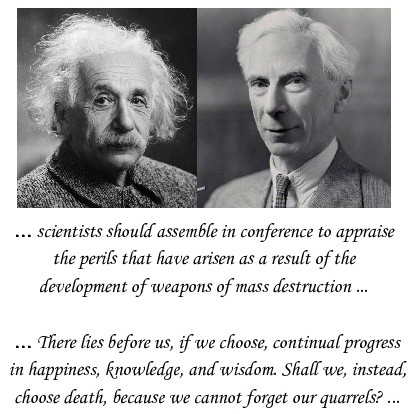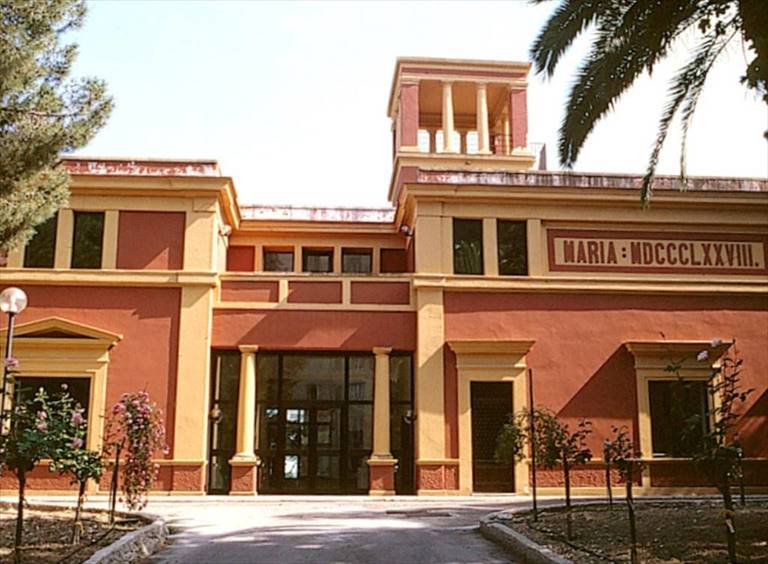Social and political engagement
Beppe Nardulli belonged to a generation which considered social and civil engagement as a duty and a responsibility. As a scientist, he wanted to use and share his competence to serve important causes.

In 1982 he contributed, together with Carlo Bernardini, Francesco Calogero, Paolo Cotta-Ramusino, Roberto Fieschi, Francesco Lenci, Carlo Schaerf and others, to found Unione Scienziati Per Il Disarmo (USPID, Union of Scientists for Disarmament), an association aimed at providing information and analyses about nuclear proliferation, arms control and disarmament. He has been secretary-general of USPID from 1988 to 1995. He wrote several papers and gave seminars about nuclear weapons in Europe, denuclearization of the Mediterranean area, the Israeli-Palestinian conflict, anti-personnel mines, which have been and still are a reference in the field. USPID is still involved in spreading rigorous and scientific based information on nuclear proliferation and international affairs.

Moreover, Nardulli was a member of the Pugwash Conferences, an association founded in 1957 following the release of the Einstein-Russell Manifesto, written in 1955 to warn against the dangers of thermonuclear weapons. Pugwash aims at fostering creative discussions on ways to increase the security of all sides, promoting policy development that is cooperative and forward-looking, and affecting political decisions on militar and international issues. The association was awarded the Nobel Peace Prize in 1995 for its long-standing tradition of "dialogue across divides". Nardulli organized the 57th Pugwash International Conference in Bari in October 2007.

Beppe Nardulli believed that such themes should be emphasized and studied within the academia as well. For this purpose, in 1989 he promoted the realization of the Interdepartmental Center for Peace Research "G. Nardulli" of the University of Bari. The Center, which has been initially directed by Nardulli himself, is currently active and promotes research and training on the themes of peace and disarmament. On the 31/10/2008, the Interdepartmental Center for Peace Research has been named after him, one of the founders and main figures of the center, an example of scientist committed to social and political issues, for his long-time academic and scientific activity and for his contribution to the outreach and research on peace and nuclear disarmament, prematurely died in June.
Starting from 1994, he has been the promoter and director of several editions of the Specialization Course in Politics and Technologies of Peace and Disarmament, open to graduate students from different faculties aiming at working in these fields.
Documents
In the following, some drafts written by Giuseppe Nardulli and taken from his website are collected. A broader list, although partial, of papers and documents written by Beppe about political and social affairs can be found at this link.
Freedom of research and social responsibility
«Per tratteggiare con poche parole l'entità di questi problemi morali ricordo la celebre frase di Robert Oppenheimer scritta nel '48 a commento di quella vicenda: "i fisici hanno conosciuto il peccato e questa è una conoscenza che essi non possono perdere"»
You can listen to Beppe's contribution to the Forum "Science, research, individual freedom, secularism" (2006, in Italian). The whole seminar can be found at this link.
Peace and disarmament in Puglia
«L'attenzione della città di Bari per i temi della pace e del dialogo tra culture, civiltà e religioni ha una storia antica, ma qui ci limiteremo ad un breve sommario delle attività che, negli ultimi quarant'anni, possono essere ricondotte al tema del rapporto tra istituzioni culturali e movimenti per la pace.»
The interest towards the themes of peace and disarmament in Puglia are well summarized in this article (in Italian). These slides aim at informing people about nuclear power opportunities and risks.
Nuclear proliferation 60 years after Hiroshima
«Si può notare quindi che fin dal principio vi sono state almeno due motivazioni e quindi anche due politiche antiproliferazione. La prima volta a mantenere il privilegio dei detentori di queste armi, la seconda attenta ai rischi della proliferazione quindi decisamente contraria alle armi nucleari. È bene tenere sempre presente questa distinzione per evitare facili strumentalizzazioni...» «...Esiste uno strumento legale, diverso dalla legge del più forte, per evitare la proliferazione nucleare? La risposta è positiva: il trattato di non proliferazione nucleare (TNP).» «... discuss in some detail the evidence for the Israeli nuclear capability, the main features of its nuclear infrastructure and the relation of the nuclear weapons with the security in the Middle East and with the peace process in this area... discuss which measures can be adopted to reduce the role, and, eventually, to eliminate nuclear weapons from the Middle East.» «Le armi nucleari continuano ad essere interpretate come simboli di forza ed orgoglio nazionale, nonostante il fatto che una guerra nucleare non può e non deve essere combattuta.»
Some considerations about nuclear proliferation are collected in this document (in Italian), summarizing a seminar given at Bicocca University (Milan) in 2005, and in these slides (in Italian) prepared for the Specialization Course in Politics and Technologies of Peace and Disarmament in 2004. Nuclear weapons in Middle East are discussed in this document, summarizing a seminar given at the "Summer School On the Diplomatic Aspect of the Middle East Peace Process" held in Molfetta (Italy) in 1998.
International security
«Le guerre scoppiano per una miscela complessa di ragioni economiche, ideologiche e spesso anche psicologiche. Tra le cause di molti conflitti dell'ultimo decennio un ruolo importante spetta alle ideologie nazionalistiche e religiose. Tuttavia queste ideologie non avrebbero forza materiale se non si accompagnassero a profonde ragioni strutturali ed economiche.» «...si pensi che qualche anno fa una rete di associazioni è riuscita ad imporre all'attenzione internazionale un trattato internazionale di disarmo (messa al bando delle mine antipersona) nonostante l'ostilità dei paesi produttori delle armi bandite... Anche per queste organizzazioni gli anni che abbiamo innanzi a noi saranno decisivi per una definizione di ruoli, influenza e potere. Sta a tutti noi, e soprattutto alle giovani generazioni, lottare perché questa influenza si rafforzi e si accresca.» «A few days after the 9/11... deep feelings of sympathy we all proved for our US guests and the sorrows for the innocent victims... The Bush administration has been able to dissipate such a political capital with astonishing rapidity. The shift in the European public opinion has been observed by different surveys.» «... i caratteri della fase storica nella quale nacque la NATO: supremazia tecnologica degli USA sull'URSS e dominio economico e militare nei confronti dei loro alleati. Occorre tener presenti questi dati nell'analizzare la fase odierna, nella quale le condizioni sono molto variate. L'URSS è scomparsa, la supremazia economica sui paesi europei è molto attenuata.»
Some considerations about conflicts and international security are collected in this manuscript (in Italian) written in 2002, and in these slides (in Italian), referring to a lecture given for the Specialization Course in Politics and Technologies of Peace and Disarmament in 2004/2005 at the University of Bari. A glance at US-Europe relationship in 2003 is given in this contribution to the X International Castiglioncello Conference in 2004, and in this contribution (in Italian) about NATO.
Islam
«L'Islam è un codice completo di vita, non è solo una religione. Come tale include anche gli aspetti economici. E tra questi la Zakah è fondamentale mezzo per il benessere sociale ed equa distribuzione della ricchezza»
Some information about Islam history, Muslim Brotherhood, Iran, Lebanon, Afghanistan and Al Qaida is collected in these slides (in Italian) referring to a lecture given for the Specialization Course in Politics and Technologies of Peace and Disarmament in 2004/2005 at the University of Bari.
China's growth dilemmas
«... China lacked emerging new technologies and telecommunication and had small if any access to financial markets and natural resources, in particular oil... China's leaders saw the opening of a window of opportunity for their country, what they called a strategic opportunity (zhanlue jiyuqi) to escape the course of economic and political dependence that any realistic analysis would have predicted.»
Some considerations about the China's growth are reported in this paper prepared for the 54th Pugwash Conference on Science and World Affairs, 4-9 October 2004, Seoul, South Korea.
War in Afghanistan and terrorism
«Tantum religio potuit suadere malorum... Il verso di Lucrezio ci ammonisce, con la saggezza degli antichi, che i fondamentalismi religiosi, da quello islamico a quello dei partiti religiosi al potere in Israele, da quello degli evangelici nordamericani a quelli cattolico o slavo-ortodosso costituiscono una eredità con cui l'umanità non può permettersi di convivere.»
Some considerations about the war in Afghanistan and terrorism are reported in this manuscript (in Italian) written in 2002 for the USPID workshop held in Pisa.
Iraq War
«A partire dall'agosto 2002 gli Stati Uniti hanno reso evidente l'obiettivo di liquidare il regime di Saddam Hussein... agli occhi di una popolazione americana smarrita e conscia della propria vulnerabilità è apparsa convincente l'immagine di un presidente deciso a liquidare tutti i nemici degli USA.» «A nice game can be played these days on Google. Go to this popular web site and search for weapons of mass destruction. The following answer will appear: "These Weapons of Mass Destruction cannot be displayed. The weapons you are looking for are currently unavailable. The country might be experiencing technical difficulties, or you may need to adjust your weapons inspectors mandate... If you are George Bush and typed the country's name in the address bar, make sure that it is spelled correctly (IRAQ)".»
Some considerations about Iraq war are collected in this manuscript (in Italian) written in 2003, and in this seminar given at the 53rd Pugwash Conference Advancing Human Security: The role of Technology and Politics, Halifax (Nova Scotia, Canada) in 2003.
Yugoslav Wars
«La guerra in Yugoslavia può essere vista ed interpretata sotto vari punti di vista... sono quattro gli aspetti che risultano, in un modo o nell'altro rilevanti: giuridici, morali, economici, politici.» «The aim of this lecture is to introduce a discussion on some features of the era opened by the end of the Cold War. I shall argue that in the near future we shall see at work two opposite trends: the first one towards strategic stability and political integration and a second one towards political crises and instabilities. The Yugoslav conflict is particularly important from this point of view...»
Some considerations about Yugoslav wars are collected in this manuscript (in Italian) written in 1999, and in this lecture about international relations after the end of the Cold War.
Scientific and military research, new technologies
«Prende allo stesso tempo sempre più corpo un fenomeno solo apparentemente paradossale, e cioè che la crescita di consumi ad alto contenuto tecnologico si accompagna ad un perdurante analfabetismo scientifico ed al fiorire di nuovi fenomeni irrazionalistici e di rifiuto del pensiero razionale.»
Some considerations about scientific and military research and on the impact of new technologies in social life are collected in this draft (in Italian) written in 1999.
Landmine warfare
«The historical evolution of the mine warfare can be useful to elucidate future trends and developments of these weapons. The definition of mine in the Britannica is as follows: stationary explosive device that is designed to destroy personnel, ships, or vehicles. While rather comprehensive, this definition does not describe in detail the continuous evolution of these weapons in the last century.» «Nel dicembre 1997 il premio Nobel per la pace è stato conferito alla Campagna internazionale per la messa al bando delle mine antipersona ed alla sua portavoce Jodie Williams. Si è trattato di un importante riconoscimento all'insieme di associazioni, gruppi e singoli individui che da alcuni anni cercano di sensibilizzare l'opinione pubblica sulla questione delle mine antipersona, sul peso economico, sociale ed umano da esse rappresentato, e sulla necessità di uno sforzo collettivo per risolvere questo drammatico problema.» «Questa tecnica si basa sulla proprietà, comune a tutti gli esplosivi noti, di contenere azoto in concentrazioni elevate, molto maggiori di quelle presenti comunemente nel terreno. Se viene irradiato da neutroni termici, l'azoto passa attraverso una reazione nucleare di cattura radiativa: il neutrone viene assorbito e, immediatamente dopo, viene emesso un raggio gamma monoenergetico, che, una volta identificato, segnala la presenza di esplosivo nel terreno.»
Some considerations about landmine warfare, detection and problems related to the production and the removal of antipersonnel landmines from the infested areas are collected in this paper presented at the USPID - VII International Castiglioncello Conference in 1997, and in this manuscript (in Italian), in which the contributions to the research in mine detection provided by the Physics Department and Centro Interdipartimentale di Ricerche sulla Pace of Bari University and Politechnic are emphasized.